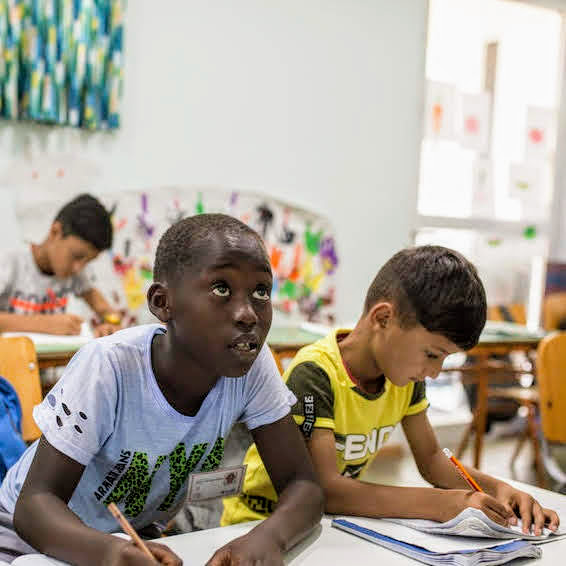Access to Durable Solutions Among IDPs in Iraq, 2016-2021
Iraq, 2016 - 2021
Get MicrodataIdentification
IOM_IRQ_2020_ADS_v2.1
Access to Durable Solutions Among IDPs in Iraq, 2016-2021
| Name | Country code |
|---|---|
| Iraq | IRQ |
Access to Durable Solutions Among IDPs in Iraq is a unique study that follows, through six rounds of data collection, Iraqi households who were internally displaced between January 2014 and December 2015 by the Islamic State of Iraq and the Levant (ISIL). The study aims to shed light on how evolving conditions of prolonged displacement change the lives of IDPs over time and how IDPs themselves adapt and engineer solutions to displacement-related challenges.
The study is based on the Inter-Agency Standing Committee’s (IASC-2010) Framework on Durable Solutions, which lays the cornerstone for specifying how governments, humanitarian practitioners and academics alike attempt to measure IDPs’ advancement toward durable solutions. The framework defines three 'durable solutions' — sustainable return, sustainable reintegration or sustainable resettlement — each of which depends on the fulfillment of eight criteria: long-term safety and security; adequate standard of living; access to livelihood and employment; access to effective and accessible mechanisms to restore housing, land and property; access to personal and other documentation; family reunification; participation in public affairs and access to effective remedies and justice. IDPs are said to have reached a durable solution when they 'no longer have any specific assistance and protection needs that are linked to their displacement and can enjoy their human rights without discrimination on account of their displacement.
A joint project between the International Organization for Migration in Iraq and Georgetown University, the study not only affirms that ending displacement is a process that happens over time, but more importantly, it provides evidence for how, when and according to whom IDP households resolve the challenges of their displacement.
Sample survey data [ssd]
Household
Scope
| Topic |
|---|
| Health |
| Water Sanitation Hygiene |
| Protection |
| Food security |
| Community Services |
| Education |
| Livelihood and Social cohesion |
| Return |
| Peace Building/Conflict Prevention Sector |
| Early Recovery |
| Housing, Land and Property |
| Income Generation |
| Solutions |
Coverage
Iraq national coverage
Producers and sponsors
| Name |
|---|
| Georgetown University |
| IOM |
Sampling
IOM’s Displacement Tracking Matrix (DTM), a system used to monitor and track the movement of IDPs, was the closest approximation of a sample frame and provided information on Iraqi internally displaced people (IDP) parameters reported. Specifically, the DTM provided information on two geographic variables that were used in constructing the sample:
- Governorate of Displacement: the physical location to which households were displaced.
- Governorate of Origin: the physical location where households were living just prior to being displaced.
The sample in this dataset was stratified according to these two geographic variables—governorate of displacement and governorate of origin—with disproportionate allocation to the strata. The strata were disproportionally allocated to ensure that four groups with a very low selection probability were represented in the final sample. Given their extremely low numbers in the population, IDP families originally from Babylon living in Kirkuk or Basra and IDP families originally Baghdad and Diyala living in Basra were purposefully oversampled to ensure their inclusion in the study.
Data collection
| Start | End |
|---|---|
| 2016-03-01 | 2021-06-01 |
- Computer Assisted Personal Interview [capi]
- Computer Assisted Telephone Interview [cati]
- Face-to-face [f2f]
- Other [oth]
| Name |
|---|
| IOM |
Data Access
Georgetown University and the International Organization for Migration (2022). Access to Durable Solutions Among IDPs in Iraq, 2016-2021 (IOM website version) [PANELFILE dataset]. Retrieved from https://dtm.iom.int/iraq/durable-solutions#data.
Contacts
| Name | Affiliation | |
|---|---|---|
| Iraq DTM team | IOM | iraqdtm@iom.int |
Metadata production
IOM_IRQ_2020_ADS_v2.1
| Name |
|---|
| UNHCR |
2023-06-12
